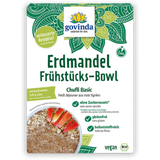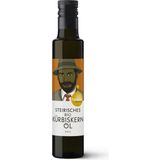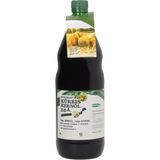A Brief History of the Spice Trade
Humans have used spices for a very long time. There is evidence that they were already used as early as the Neolithic period. Later in history, spices became a luxury and even triggered wars. Here is a brief account of the fascinating history of the spice trade.
The use of plants as a seasoning comes from Europe from the Neolithic period. Relics found in Neolithic tombs and caves suggest that herbs were used for seasoning food.
Excavations in the Middle East discovered that thousands of years ago, trade was driven by spices. Some of the spices found could have reached these regions only through trade.
The first written evidence of spices use was found in Mesopotamia. Three clay tablets from the period were found with more than 30 recipes. The tablets were from around 1750 BC. Garlic, cumin and coriander played a major role in the recipes. In fact, spices were even found in Egyptian tombs. At the time, they were also used as an ingredient for perfumes.
The Silk Road, which was made in the Bronze Age, brought Asian spices & plants to Europe for the first time. In the 1st century A.D., a sea route to India was discovered. The Roman Empire then imported their pepper. Prices fell and pepper use spread throughout the empire.
In 330 A.D., Constantinople became a trading metropolis, and nutmeg and cloves were brought to Europe for the first time. With the decline of the Roman Empire and the collapse of maritime trade, using the Silk Road became popular again.
Even then, spices were also seen as a medicine. In the Middle Ages, the Order of the Benedictines made the medicinal use of spices and their effects well known. Magical effects have also been attributed to spices since the 18th century.
Spices became a status symbol of the upper classes during the Crusades (11th-13th cent.). Back then they were so precious that they were treated like jewels.
Prices rose further and further. In the 15th century, the pepper price increased up to thirty times its worth during its trip from India to Venice. At the time, Venice was the center of the spice trade. New paths and trade routes to India were heavily sought to avoid paying these high prices. Thus began the era of great explorers like Columbus or da Gama.
With the discovery of America, the tastes of the old world underwent a revolution. When Vasco da Gama discovered a sea route to India, he started a race for spices, money and power.
Portugal turned into a world power overnight through da Gama's discovery as most of the spice producing regions fell under his control. The Dutch took offense to losing their place in the sun and soon used any means possible to maintain and expand their power. They expelled the Portuguese, enslaved and mistreated the locals and drove the prices mercilessly upwards. They even destroyed their own goods in order to streamline the supply and demand more profits. Until the 18th century, the Dutch remained at the forefront of the spice trade.
The Dutch monopoly broke thereafter. A French official adventurously managed to smuggle nutmeg and clove seedlings out of a field on the Spice Islands and brought the spices back for cultivation in the French colonies. At the same time, the toll of their wars, corruption and debt began to harm the Dutch. Spices have since were quickly globalized and grown in an increasing number of regions where the plants were not originally native.
After the decline of the Spanish vanilla monopoly, the prices also declined. In the 19th century, many people in Europe could afford exotic spices.
Latest reviews
-
 1.0 (1)
1.0 (1)Govinda Organic Tigernut Breakfast Bowl Basic, 500 g
- Gluten-free & lactose-free
- No added sugar
- With apple & cinnamon flavour
€ 7,79 (€ 15,58 / kg)Delivery by May 09
-
 4.9 (8)
4.9 (8)Ölmühle Fandler Organic Pumpkin Seed Oil, 500 ml
- 100 % pure pumpkin seed oil
- Organic quality
- Nutty, velvety, aromatic
€ 21,99 (€ 43,98 / l)Delivery by April 16
-
 4.9 (76)
4.9 (76)Bauernhof JÖBSTL, vulgo STINDL Styrian Pumpkin Seed Oil PGI, 1.000 ml
Bestseller- 100% pure Styrian pumpkin seed oil PGI.
- Gold medal winner with the highest points 20 years in a row
- Gault&Millau Award 2019, 2020 & 2023
€ 26,99 (€ 26,99 / l)Delivery by April 16
-
 5.0 (1)
5.0 (1)BIO PRIMO Organic Pure Aronia Juice, 330 ml
- 100% aronia juice
- Naturally cloudy
- Intense fruity taste
€ 3,29 (€ 9,97 / l)Not available at the moment
Magazine Articles:
Discover Piccantino :
-
Austria: Free standard delivery from € 49,90
-
Free
returns -
24-hour shipping
More than 11.500 products
